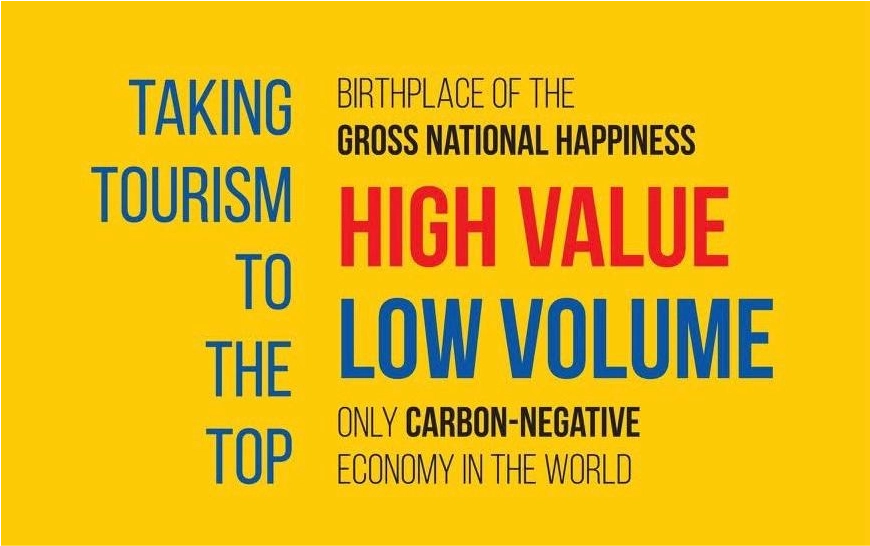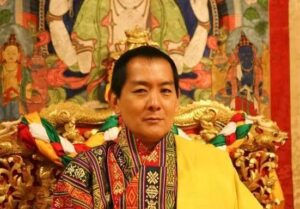
A Billionaire’s Rendezvous with Mindfulness
“It was not just the yogurt,” he said with a soft smile. “It was the spirit behind it—the heart of Bhutan.”
This simple yet profound statement by a billionaire visitor encapsulates the essence of Bhutan’s hospitality.
Phuntsho Gyaltshen’s Facebook story (https://www.facebook.com/funsogelsen) about a billionaire visitor and a Bhutanese Lady is such a heart-warming story, beautifully capturing the essence of Bhutanese hospitality. A big applause to the kind Bhutanese Lady whose simple yet profound act of mindfulness left an treasured impression on the billionaire visitor. Her trust and warmth reflect the ideal spirit of Bhutan – where every citizen is a great host to visitors, ensuring they experience not just the physical landscapes but also our values.
This story serves as a striking example of the High Value in Bhutan’s High Value, Low Volume tourism. While exploring Bhutan, the visitor found himself without Ngultrum or small USD notes to pay for a cup of yogurt. Instead of turning him away, the Lady shopkeeper insisted he take the yogurt and pay later, even at the risk of never being paid.
This small act of trust and generosity left a deep impact on the billionaire, reinforcing Bhutan’s global reputation as a land of warmth, trust and sincerity. Is this High Value Hospitality? Absolutely.
This story serves as a reminder that every Bhutanese plays a role in shaping the perception of visitors. A single interaction can define Bhutan’s image in the eyes of the world, making every citizen an ambassador of its values. However, the same is true in reverse—one negative experience could tarnish Bhutan’s reputation. Mindfulness in every interaction is key.
Bhutanese Duty in Tourism
i. Thrashing Trash
Bhutan has long been admired for its pristine environment. However, modern consumer habits have led to an increase in waste. Each citizen must take responsibility for keeping Bhutan clean. Disposing of trash responsibly and encouraging sustainable practices will help maintain Bhutan’s image as the Last Shangri-La.
ii. Protecting Public Properties
Visitors interact with public facilities daily, from streets, gardens, offices, restrooms, monuments, forests and mountains. Ensuring these properties and spaces are well-maintained reflects national pride and enhances visitor experiences. Bhutanese must treat public properties and spaces with care, setting an example of responsible citizenship.
iii. True Tour Operators
Tour operators play a crucial role in shaping visitor experiences. Offering ethical and high-quality services rather than undercutting prices protects Bhutan’s reputation as a premium travel destination. Operators must adhere to the nation’s tourism policies and ensure that visitors experience the best Bhutan has to offer.
iv. Good to Great Guides and Devoted Drivers
Tour guides and drivers are often the first point of contact for visitors. They must uphold professionalism, cultural knowledge, and ethical behavior. Their conduct shapes how Bhutan is perceived. Avoiding bad habits such as smoking, chewing doma, drinking alcohol in presence of visitors, ensuring safe driving practices, and treating visitors with patience and respect go a long way in enhancing the tourism experience.
v. Homely Hotels & Restaurants
Hotels and restaurants must provide a home-like atmosphere with personalized service. The quality of food, cleanliness, and hospitality can define visitors’ impression of Bhutan. Staff must prioritize visitors’ satisfaction, ensuring that each visitor leaves with a positive experience.
vi. Homemade Handicrafts
Bhutanese handicrafts are highly valued by visitors. Selling imported items as Bhutanese products damages the trust and authenticity of Brand Bhutan. Transparency and a commitment to promoting local crafts will ensure that visitors take home genuine pieces of Bhutanese heritage.
vii. Perfecting Public Service
The efficiency of public services plays a vital role in shaping Bhutan’s tourism sector. Government offices, souvenir shops, transport services, tour, hotel and guide services, and customer service points must improve responsiveness and professionalism. Delays, complacency, or poor coordination can create frustration for visitors, which contradicts Bhutan’s tourism values. Every Bhutanese working in public service must adopt a mindset of excellence and accountability.
All Bhutanese as Brand Ambassador
Bhutan’s greatest asset is its people. And even the visitors have time and again confirmed that, the one thing that they loved most in Bhutan is the “people.” It is not the pristine mountains, unique culture, dzongs, ema-datsi and the mask dances at the tshechu, none of these.
“One of the game-changing advances that Bhutan can do is the deployment of brand ambassadors. These ambassadors are actually your own people, the ordinary Bhutanese”, said Mr Koh Buck Song, author of Brand Singapore. It has been Singapore’s main operating model for the last 50 plus years and without a doubt a successful one at that.
Rightly so, the true strength of Bhutan’s tourism industry lies in its people. While we all are by default our country’s ambassadors, but we need to be more mindful as we carry out this solemn responsibility. We cannot afford to make even a single visitor unhappy for any reasons. So, taking up the role of nation’s ambassador is no small job, it should be embraced with the same spirit as the Bhutanese adage describing a Royal command: “It is more daunting to carry out the Royal command than to carry a mountain, and more precious than gold to be ignored or put aside.”
Every interaction, whether with a tour operator, guide, hotelier, service staff, porter, police, farmer, air hostess and steward, public servant, shop keeper, driver, cook, farmer, student, hotel receptionist, wet sweeper, street vendor, civil servant, shapes a visitor’s perception of Bhutan.
Eternal Inspiration from the Golden Throne
His Majesty The King, an unwavering source of inspiration and guidance, during the Royal Address at the passing-out parade of the 2nd Cohort, 1st Batch of Gyalsung Training on March 24, 2025 has set forth a vision for Bhutan’s future, emphasizing that economic progress must be built on a foundation of trust, reputation, and national strength. This vision is encapsulated in the three pillars of economic strategy:
i. Brand Economy– Bhutanese identity, rooted in authenticity, humility, sincerity, and responsibility, is our greatest asset. The reputation built by generations before us must be safeguarded and strengthened.
ii. Trust Economy– Bhutan’s economy must go beyond maximizing profits. It must be built on integrity, sincerity, and enduring partnerships, where Bhutanese people trust one another and earn the trust of the world.
iii. Strength Economy– Financial, geopolitical, and strategic advantages must be leveraged with intelligence and foresight to secure national interests.
At the sectoral level, Bhutan’s High Value, Low Volume tourism model is a living example of these three economic pillars in action. It ensures Bhutan remains exclusive and sought-after destination, prioritizing value over volume, value in experience, sustainability, trust and revenue.
Conclusion
Bhutan’s tourism model reflects the essence of a Trust Economy—where trust is not just a value, but the very currency that sustains our success. His Majesty’s vision for a Brand Economy, Trust Economy, and Strength Economy underscores the profound responsibility each Bhutanese holds in shaping the nation’s future.
Through repeated small acts of kindness, commitment, dedication, sacrifice, courage, and responsibility, all Bhutanese can answer the Royal Call for Great Nation-Building. Guided eternally by the wisdom of the Golden Throne, we move forward as a nation built on brand, trust and strength as recently exhibited by the Lady who sold yogurt to a billionaire visitor on credit.
Palden Drukpa Gyalo!.
Doji Dhratyul, Author & Creativist



